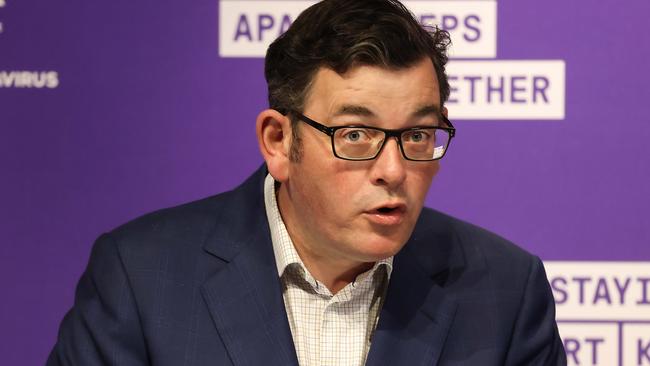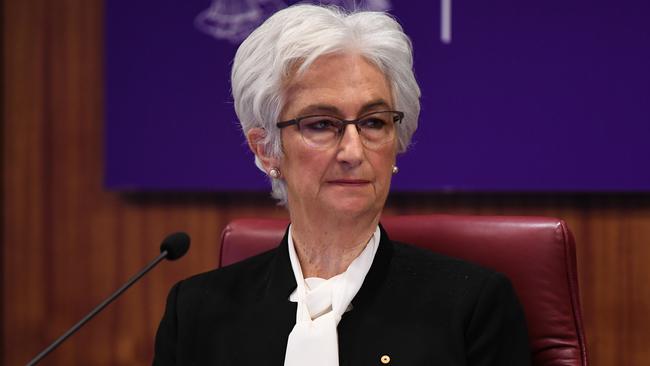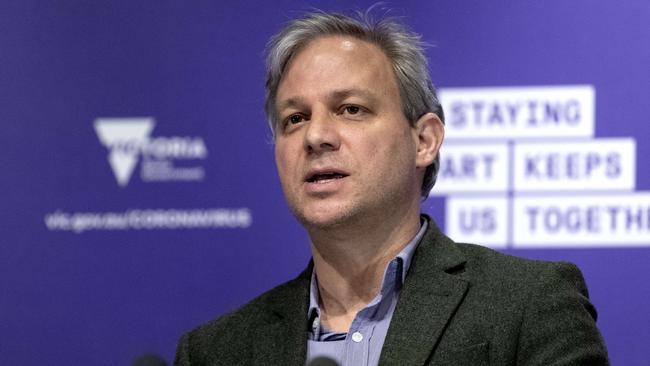Hotel quarantine inquiry must get to the bottom of Victorian government’s COVID-19 mess
Tuesday’s hotel quarantine inquiry sitting is the circuit-breaker Jennifer Coate needs to restore the integrity of her investigation and get to the bottom of the state’s monumental bungle.
Coronavirus
Don't miss out on the headlines from Coronavirus. Followed categories will be added to My News.
Tuesday’s extraordinary sitting of the hotel quarantine inquiry is the circuit-breaker chair Jennifer Coate needs to restore the integrity of her investigation.
It has become obvious in recent weeks that despite Premier Daniel Andrews’ pledge of full co-operation, information was being withheld, the board of inquiry was being misled and not being taken seriously by government witnesses who apparently suffered collective memory loss.
This was an insult to the board, the people of Victoria, and the families of the 798 people who died when breaches in the quarantine hotels sparked Victoria’s second wave of COVID-19.

It was a mistake for the board to politely request government officials examine their own phone records and detail any calls of interest to the board.
It was only after media reports about missing phone records the board finally lost patience and demanded to see the records themselves. Almost immediately, Victoria’s most senior public servant and Premier Daniel Andrews’ right-hand man Chris Eccles resigned, confirming he had called former police chief Graham Ashton in the crucial few minutes the program was being set up on March 27.
This was contrary to evidence he’d given that his records didn’t show such a call. And as it came after his evidence was complete, he couldn’t be cross-examined.
This is just one example of the way the inquiry was led astray. Another example was former health minister Jenny Mikakos waiting until her closing submission to urge the inquiry to tread “with caution’’ Premier Daniel Andrews’ evidence that he didn’t know private security was going to be used. She was essentially accusing the premier of telling untruths, but hasn’t been asked about it because her evidence had concluded.

Then there’s the Department of Health and Human Services, which failed to provide all relevant documents. This includes an email trail Chief Health Officer Brett Sutton was involved in, which mentioned private security, months before he said he first knew about it. He must be asked why he “didn’t register’’ the email mentioned private security. And DHHS needs to explain why it never handed the emails to the inquiry.
Ms Coate is set to requestion a number of witnesses, including Ms Mikakos, Mr Eccles, Prof Sutton, DHHS senior executives, and almost certainly Mr Andrews, as the person with ultimate accountability. This needs to be done by further public hearings, with robust examination.
Ms Coate built her fine reputation over a decades-long judicial career. She is a former president of the Children’s Court, a County Court and Family Court judge, Victoria’s Coroner, and a royal commissioner investigating institutional sexual abuse. Last year she was named an Officer in the Order of Australia. Legally, she has seen it all, and cannot allow incomplete, misleading and downright dishonest evidence to go unresolved.

The inquiry will have to junk its theory the private security decision was a “creeping assumption’’ confirmed at 4.30pm at a meeting of the State Control Centre on March 27. Instead, it must put a laser focus on the crucial minutes between National Cabinet deciding it sometime after midday on March 27 and Mr Ashton texting a colleague at 1.32pm that private security would be used as “part of a deal set up by our DPC”.’
The November 6 deadline for her final report must also be scrapped.
Ms Coate must take as much time as she needs to investigate what is on any measure Australia’s greatest failure of public policy, and if she does not have the time or powers, she must call for a royal commission with powers to compel witnesses to appear, and to subpoena documents and telephone records.
ellen.whinnett@news.com.au

